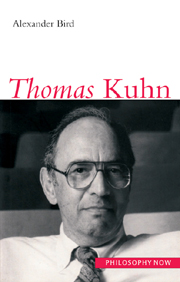7 - Kuhn's legacy
Summary
Social science after Kuhn
The Structure of Scientific Revolutions had little direct influence on the functioning of the natural sciences but its impact on social science was enormous. This impact had two aspects; the first was a change in the social sciences' self-perception, the second was a suggestion of a new role and subject matter for the social sciences. Kuhn's cyclical pattern provided a template whereby the histories of the social sciences, almost entirely ignored in Structure itself, could be described. The significance of this was not so much the furthering of historical research; rather it was the provision of a tool for validating social sciences as true sciences. Two important and obvious characteristics of the leading natural sciences – physics, chemistry and biology (taken to include the biomedical and agricultural sciences) – were absent from the social sciences and thus seemed to mark the former as genuine sciences and the latter as impostors. The first characteristic was that the natural sciences had vast and powerful technological applications. While many social scientists did believe in the possibility and value of “social engineering” and other applications of social research in areas of social policy, they found little in the way of unequivocal success. Kuhn's description of science had nothing to say at all about the application of science. He scarcely mentioned the thought that technology might be a source of problems and puzzles for scientific research; still less did he regard the possibility of technological application as any kind of sign of sciencehood.
- Type
- Chapter
- Information
- Thomas Kuhn , pp. 267 - 280Publisher: Acumen PublishingPrint publication year: 2000



